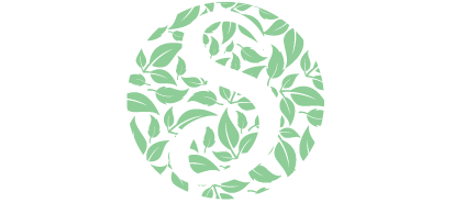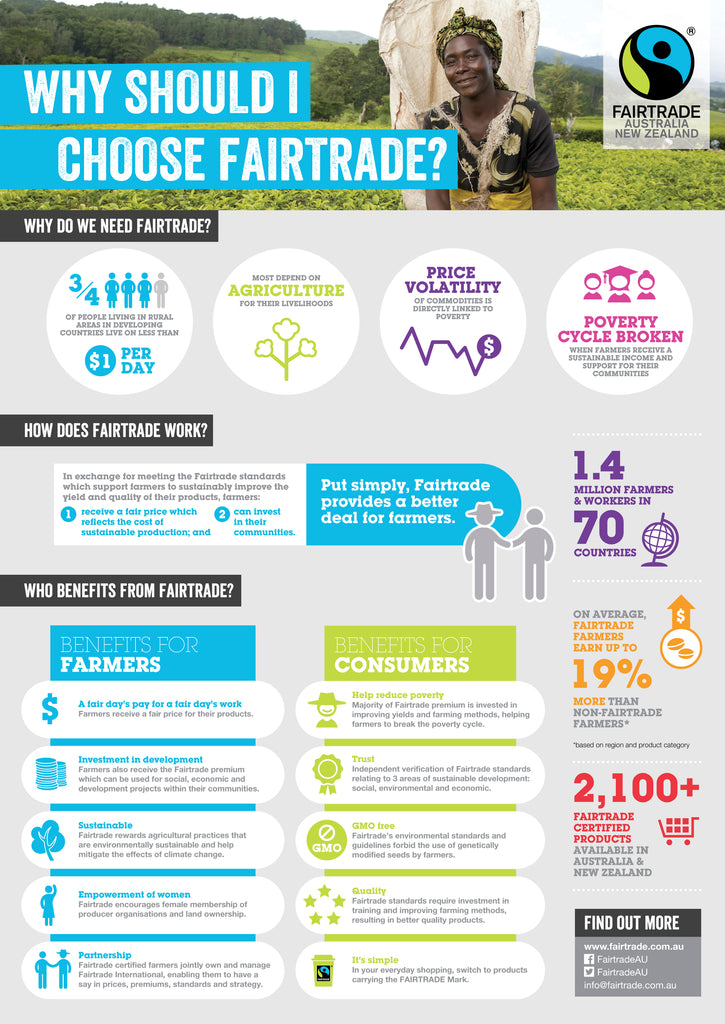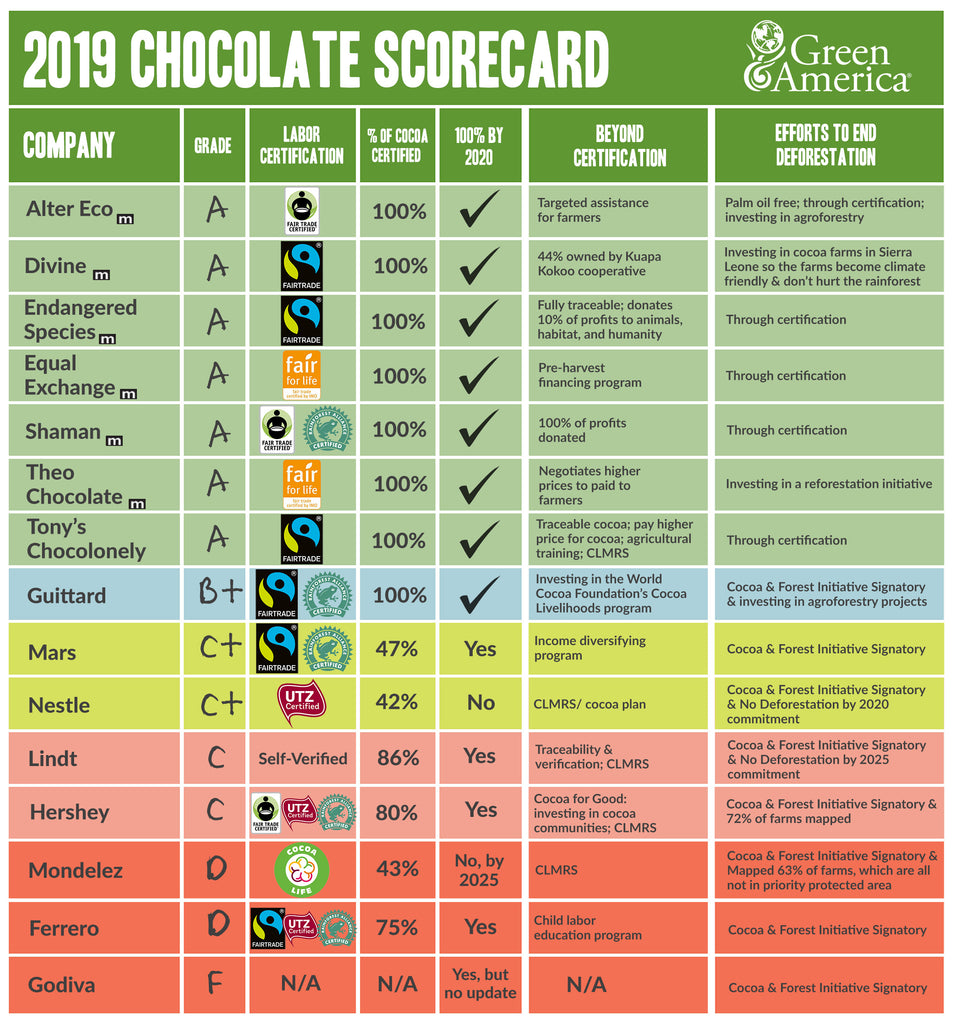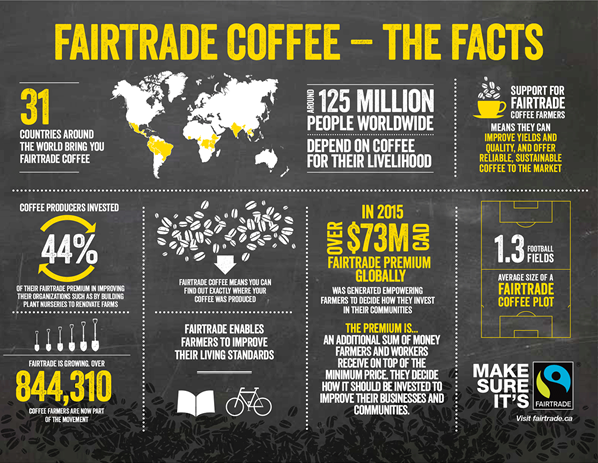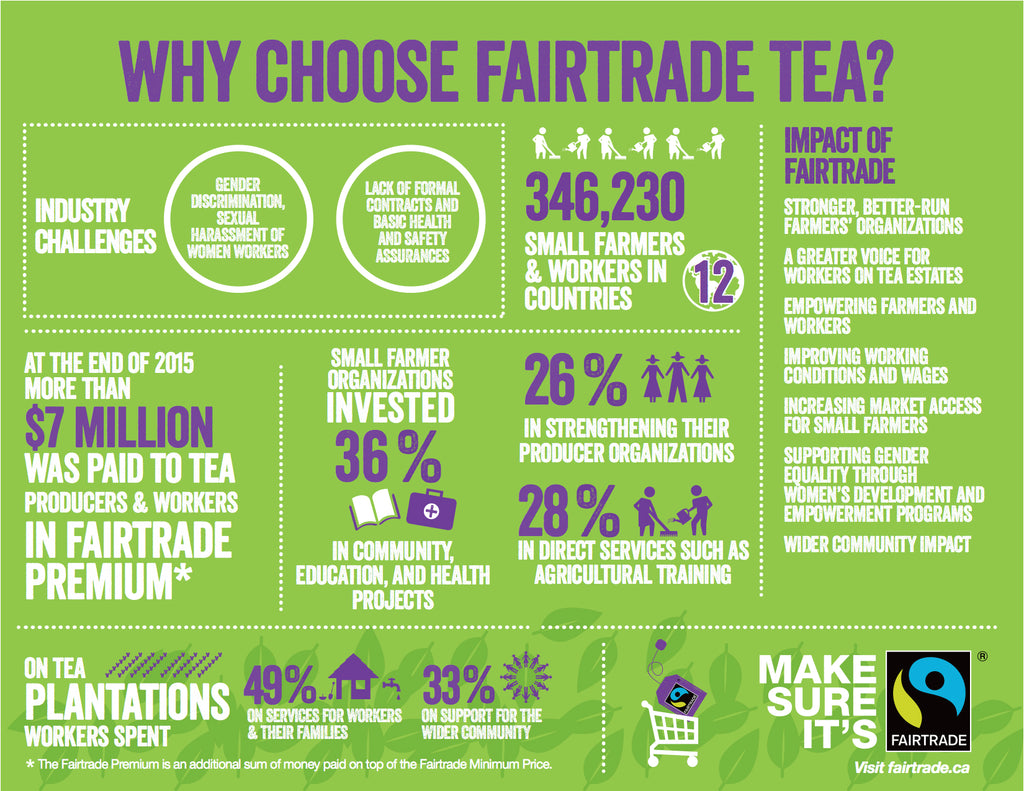Fair Trade: a movement whose goal is to help producers in developing countries to get a fair price for their products so as to reduce poverty, provide for the ethical treatment of workers and farmers, and promote environmentally sustainable practices. ~ Meriam Webster Dictionary.
Why Fair Trade Matters
When we buy fair trade, we're saying yes to ethical labor practices, safe working conditions for farmers and workers, fair wages, and worker's rights, and no to worker abuse, child labor, gender discrimination, and practices that are harmful to the environment.
6 Common Items to Buy Fair Trade
1. Bananas. According to Fair Trade America, "bananas and other tropical fruits travel thousands of miles to arrive in our grocery stores and yet sometimes cost as little as $0.49/pound. Why is this? A lot of it has to do with banana farmers not getting paid a fair price for their fruit. Not only are farmers paid unfairly, but workers are often exposed to toxic pesticides and chemicals that are sprayed on the fruit." Aldi and Whole Foods currently carry fair trade bananas.
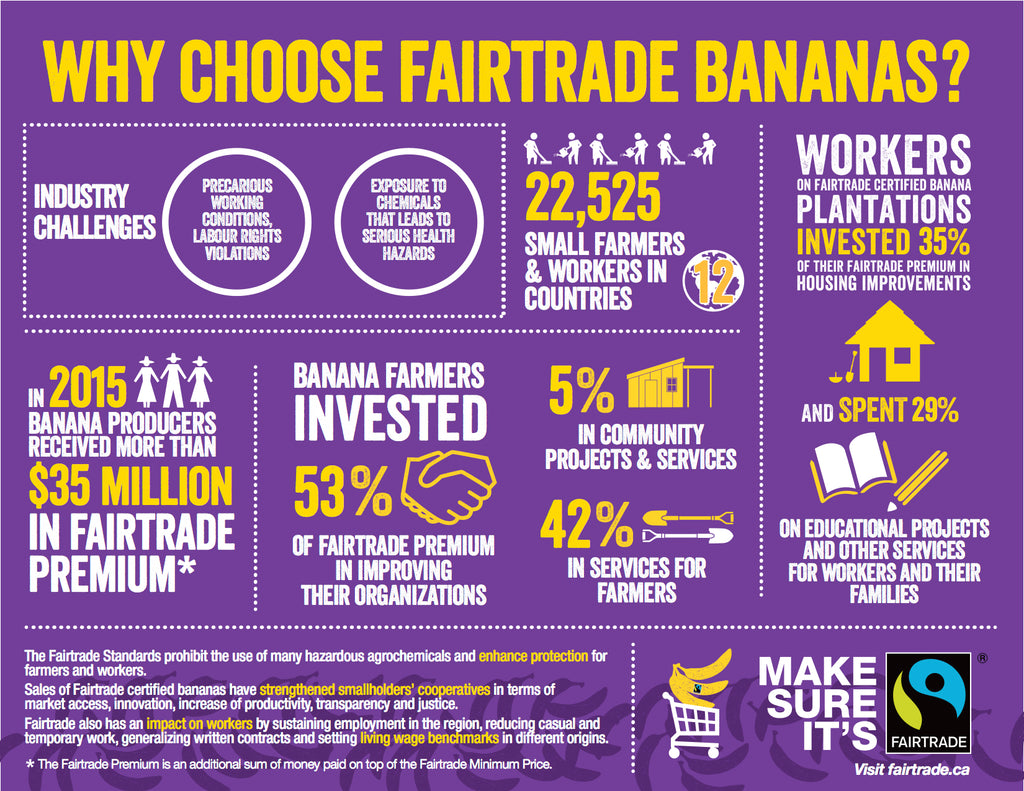
2. Chocolate/Cocoa. Much of the chocolate purchased today is produced by child labor in the Ivory Coast. According to a 2015 U.S. Labor Department report, "more than 2 million children were engaged in dangerous labor in cocoa-growing regions." While some companies have begun tracing their supply chains to help prevent child labor, a majority of the cocoa produced annually is sourced from small farms in West Africa, where cocoa farmers live on less than $1 per day.
3. Coffee. Coffee is one of the worst culprits when it comes to intense labor and unhealthy working conditions for farmers. Fair trade certified coffee ensures that farmers are paid ethical prices for their labor and allows farmers to market their own harvests through direct, long-term contracts with international buyers. By receiving a fair price for their harvest, farmers are able to invest in their families' health and education, which empowers farming families and lifts them from poverty through trade—rather than aid.
4. Tea + Spices. Low wages, gender discrimination, sexual assault, and poverty are just a few reasons to choose fair trade tea and spices. Even workers who own their own land often don't make enough to feed their families. A few of my go-to brands are Frontier Coop (spices + teas), Choice Organic Tea, Organic India, and Numi Organic Tea.
5. Cotton/Clothing. Millions of farmers in West Africa and India live below the poverty line, having to rely on middle men who purchase their cotton at prices below their production cost. This is often due to poor prices for seed cotton, as well as government subsidies for cotton farmers in the states, which create a market with artificially low prices that small-scale farmers are unable to compete in. Even worse, in 2016, the US Department of Labor reported child labor in the cotton production process in 18 countries. To learn more about how cotton is produced, check out the video below. Also, here is a good place to start if you're looking for fair trade clothing brands.
6. Nut Butters + Oils. From Shea and Cocoa butters produced in Africa to coconut oil from the Philippines, many of the nourishing ingredients we put on our skin are made by people living in poverty. Fortunately, many women's cooperatives, non-profit organizations, and companies that are dedicated to fair trade help to ensure that farmers are paid fair wages and work in safe and ethical environments. Here are a few brands that I trust:
- Coconut Oil: Dr. Bronners
- Shea Butter: Alaffia, Aura Cacia
- Cocoa Butter: Aura Cacia, Mountain Rose Herbs
Fair Trade Labels: What They Mean
With so many different labels and certification companies, it can be confusing to know what they all mean. Here is a breakdown of the most common labels:
 Fairtrade standards prohibit forced labor, child labor, and discrimination. If child labor is detected in a supply chain, Fairtrade immediately enacts its child protection policy and implements remediation efforts. Certified farmers’ organizations receive at least the Fairtrade Minimum Price and a Fairtrade Premium that they use to invest in their communities and business. To use the FAIRTRADE certification mark on a product, all ingredients that can be certified must come from Fairtrade sources.
Fairtrade standards prohibit forced labor, child labor, and discrimination. If child labor is detected in a supply chain, Fairtrade immediately enacts its child protection policy and implements remediation efforts. Certified farmers’ organizations receive at least the Fairtrade Minimum Price and a Fairtrade Premium that they use to invest in their communities and business. To use the FAIRTRADE certification mark on a product, all ingredients that can be certified must come from Fairtrade sources.
Fair Trade USA’s Fair Trade Certified standards prohibit forced labor, child labor, and discrimination, and protects freedom of association and collective bargaining rights. If child labor should surface, remediation guidelines are put in place. Fair Trade Certified certifies farmer cooperatives as well as larger plantations.

The Fair for Life guarantees that smallholder farmers receive fair payment and that workers enjoy good and fair working conditions. The Fair for Life system prevents forced and child labor and also includes detailed environmental criteria. Fair For Life certified products must use Fair Trade ingredients if available, and regardless, 50% of all ingredients must be Fair Trade in order for a product to have the seal.

Equal Exchange certifies Fairly Traded and organic coffee, tea, chocolate bars, cocoa, bananas, and almonds. It’s a co-op that has been in existence for over 25 years and works to empower both farmers and consumers. In the mid-80’s they were the first to introduce Fair Trade coffee to U.S. grocery stores. In 2004 they introduced Fair Trade sugar as a stand-alone product in the U.S. Equal Exchange also helps educate consumers and the public about Fair Trade through school curriculums for grades 4-9, as well as an interfaith program to help churches, schools, and other non-profits raise awareness and develop fundraising opportunities.

The Fair Trade Federation is the trade association that strengthens and promotes North American organizations fully committed to fair trade. The Federation is part of the global fair trade movement, building equitable and sustainable trading partnerships and creating opportunities to alleviate poverty.

The WFTO is a global membership organization for committed fair trade producer groups, retailers, wholesalers, and fair trade brands. Membership of the WFTO is limited to organizations that demonstrate a 100% fair trade commitment and apply its 10 Principles of Fair Trade. WFTO members must participate in its Guarantee Program that combines peer review with third-party audits and then may use a WFTO Guarantee label on products, making WFTO the only fair trade membership organization to require third-party auditing of supply chains.
How will you choose fair trade today? Remember: there are more ways to support beyond purchasing fair trade. If you don't have access to fair trade products or cannot afford to spend more, you can help by spreading awareness and sharing this knowledge with others, and by demanding that companies do more to ensure ethical treatment and fair wages for their workers.
Love + Light,
Smita :)
